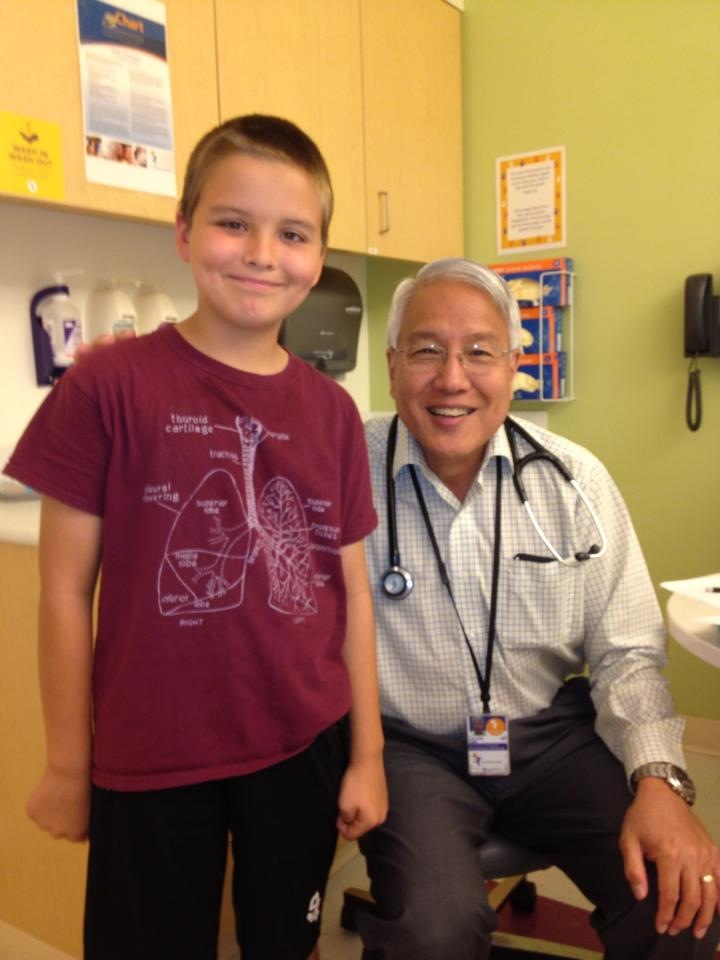Your child will meet many medical team members during their chILD journey. The faces of your medical team will change over time, especially while finding a diagnosis. As your child grows, more team members may be needed to help with new challenges that come along.
It is important to know who is a part of your child’s core medical team. Click on the sections below to learn more about the different types of doctors and other care providers who may be involved with your child.
To learn more about finding a successful medical team, including chILD Centers for support please click here.
Pediatric Pulmonologist (Lung Doctor)
These doctors are experts in lung diseases of children. They have completed medical school, a residency in pediatrics, and a fellowship in pulmonology (lungs). Since chILD is very rare, your lung doctor may not be an expert in chILD. Your care team may include a lung doctor who is close by and a chILD expert who is at a chILD Clinical Care Center.
Learn More
Pulmonary Advanced Care Provider
These providers may be Nurse Practitioners or Physician Assistants who work closely with pediatric pulmonologists and chILD experts.
Learn More
Primary Care Provider
These doctors or advanced care providers may be family doctors or general pediatricians. While they may not know every detail of chILD, they are an important part of the team. They are the main contact for help with usual childhood illnesses (ear infections, colds, etc). Their team will make sure your child is up to date on their vaccinations. They also will help track your child’s growth and development.
Learn More
Nurses
Nurses are an important part of the medical team. They will interact with your family in clinic and often will help with phone calls to discuss concerns. They may help communicate with your doctor teams. Often they help with education and will make sure questions are answered. Nurses in the hospital help provide care in a different way. They give medicines and make sure your child is safe.
Learn More
Respiratory Therapists
Respiratory therapists have special training in the tools and testing we use to help children breathe. They will help with oxygen, measuring lung function, and breathing treatments. You may meet them in clinic or in the hospital.
Learn More
Pharmacists
Pharmacists have years of training where they learn everything they can about medicines. They are the experts in the use, monitoring, and side effects of medicines. You meet pharmacists when you pick up medicines at the pharmacy. There are pharmacists who also work in the hospital or clinic to help with some of the more complicated medicines used for some types of chILD.
Learn More
Gastroenterologists
These GI doctors are experts of the gastrointestinal tract. This means they take care of problems with swallowing, digestion, pooping, the pancreas, and the liver. They have completed medical school, a residency in pediatrics, and a fellowship in gastroenterology. Your child may work with a GI doctor if they need a feeding tube to help them grow. They may also help if problems with digestion or pooping come along.
Learn More
Rheumatologists
These doctors are experts of diseases that can attack lots of different body systems. These diseases are called Connective Tissue Disease. Some types of chILD happen in children with connective tissue disease. This is called CTD-ILD. For this type of chILD, the rheumatology doctors are an important part of the team. They have completed medical school, a residency in pediatric medicine, and a fellowship in rheumatology.
Learn More
Immunologists
These doctors are experts of the immune system. The immune system is the part of our body that keeps us safe from infection. Some types of chILD happen when the immune system becomes unregulated or unbalanced. For this type of chILD, the immunology doctors are an important part of the team. They have completed medical school, a residency in adult and/or pediatric medicine, and a fellowship in immunology.
Learn More
Geneticists
These doctors are experts of genetics. Some types of chILD happen because of mutations (changes) in the genes that help with lung development or function. For this type of chILD, genetic doctors may help find the diagnosis. They can also help with counseling about what to expect for a child with certain genetic mutations. They have completed medical school, some residency training in adult and/or pediatric medicine, and a residency in genetics. Some doctors may have also gotten extra fellowship training.
Learn More

